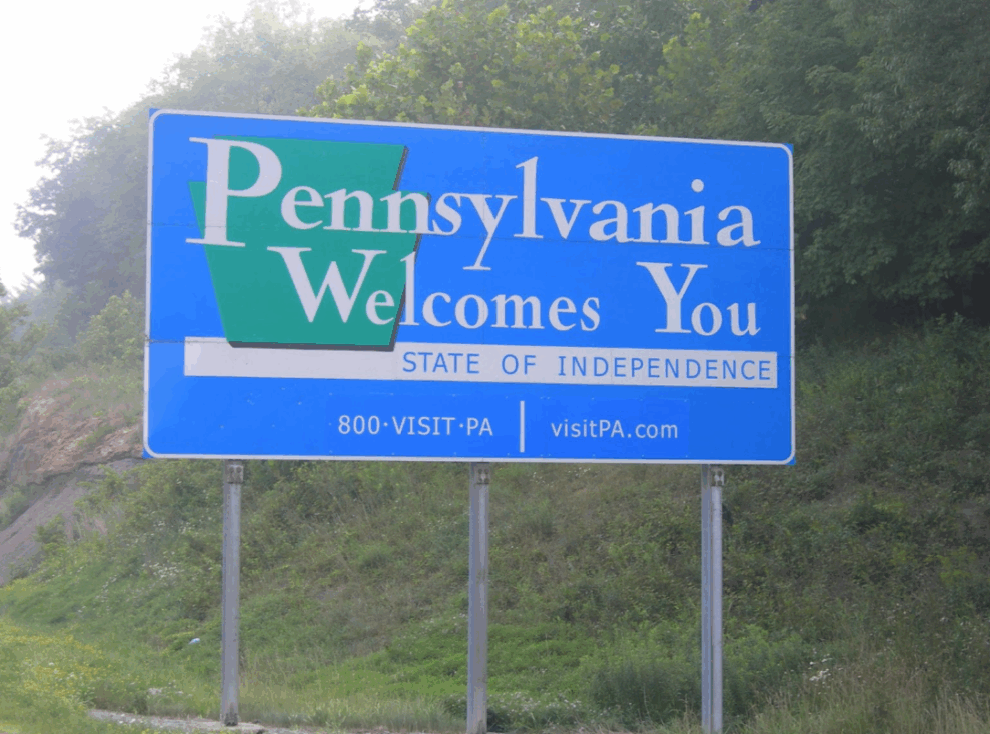The PA Chamber is offering the Keystone State as an open-for-business alternative to New York City companies threatened by socialist mayoral candidate Zohran Mamdani.
The political tremors from Zohran Mamdani’s surprise victory in New York City’s Democratic mayoral primary are already shaking up the business world—and one state is seizing the opportunity. Pennsylvania’s top business advocacy group is calling on New York companies to flee the city’s leftward lurch and relocate to the Keystone State.
Our message to NYC businesses: pic.twitter.com/4FR8uQkV6h
— Pennsylvania Chamber (@PAChamber) June 25, 2025
In a direct appeal posted to social media, Pennsylvania Chamber of Business and Industry President and CEO Luke Bernstein urged New York City firms to consider Pennsylvania’s pro-growth climate over what he described as the rising socialist tide in their hometown.
“We just heard that you might have a new mayor who happens to be a socialist,” Bernstein says in the 60-second video, referring to Mamdani’s unexpected triumph over former Governor Andrew Cuomo. “Meanwhile, here in Pennsylvania, we’ve been doing something pretty radical too—lowering taxes, streamlining our permitting, and making affordable, clean energy accessible to our businesses.”
Mamdani, a state assemblyman from Queens and self-described democratic socialist, shocked New York’s political establishment by defeating Cuomo in the crowded Democratic field. Cuomo conceded on election night, though the ranked-choice vote counting took several more days to declare Mamdani the winner. Mamdani will face incumbent Mayor Eric Adams, running as an independent, and Republican Curtis Sliwa in November’s general election.
Mamdani has built his platform around controversial redistributive policies: free bus fares, tuition-free public college, a rent freeze on stabilized units, and a $30/hour minimum wage by 2030. He has proposed paying for these programs with tax hikes on corporations and high-income earners—policies that have alarmed many in the city’s business community.
Billionaire supermarket owner John Catsimatidis, whose Gristedes chain is headquartered in Manhattan, warned he might relocate if Mamdani wins, citing the candidate’s proposal for city-run nonprofit grocery stores. “We can’t compete,” Catsimatidis told the New York Post, threatening to move operations to New Jersey.
Great piece by John Catsimatidis in @WSJ: Zohran Mamdani’s plan for gov. grocery stores isn’t “progressive”—it’s a fast track to food shortages, shuttered businesses, and Soviet-style bread lines. NYC voters should take this warning seriously. @JCats2013 https://t.co/uGfL8UBKkx
— Steve Forbes (@SteveForbesCEO) July 3, 2025
President Donald Trump weighed in on social media, calling Mamdani a “100% Communist Lunatic,” while Florida Governor Ron DeSantis predicted a surge in real estate values in Palm Beach as New Yorkers flee Mamdani’s vision.
Bernstein sees this moment as a strategic opportunity for Pennsylvania. During an event at the Pennsylvania Press Club, he laid out a comprehensive vision for turning the state into a national leader in business growth and innovation. Bernstein cited more than $30 billion in new private investment already flowing into the state as evidence of Pennsylvania’s rising appeal, including a $10 billion redevelopment in Homer City and a $20 billion Amazon data center project.
“These are the kinds of projects that can change the trajectory of entire communities,” Bernstein said. “The single most important thing we can do to set our state up for long-term success is to create an environment that attracts business investment.”
The PA Chamber’s “Keystone Initiative,” led by Bernstein, outlines four main policy pillars: continuing to lower the Corporate Net Income Tax, reforming permitting processes, leveraging natural gas for energy-intensive industries like AI and cloud computing, and strengthening workforce development to bridge skills gaps.
Though Pennsylvania still struggles with population decline and regulatory burdens, Bernstein believes the state has reached a turning point. “We’ve only just started to turn the dial up a little bit on our competitiveness, and already the response from private industry has been enormous,” he said. “We have to keep our foot on the gas.”
While business leaders debate the real threat Mamdani poses, Pennsylvania is making a calculated bet that rhetoric, policy, and perception will push some companies to look elsewhere—and that it can be the alternative.
“The future will arrive no matter what,” Bernstein concluded. “But a future we believe in—a future worth fighting for—is ours to build. If we choose to compete.”





